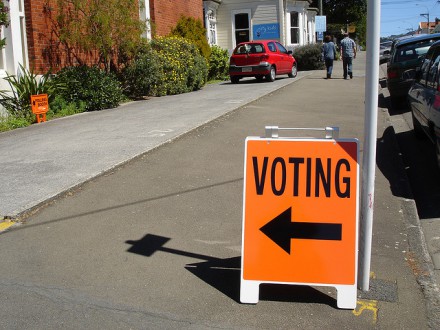2024 may end up being the last episcopal election from the Western Jurisdiction. We should be mindful in our elections of this possibility.

An Unlikely Election
At the General Conference held in Charlotte, North Carolina (USA) in May 2024, a budget and plan of action was approved that reduced our number of episcopal areas (places where bishops could serve, thus the number of bishops possibly elected). I have a deep dive blog post on this momentous action, but I’m waiting for the final Book of Discipline to be printed before I publish.
Under the approved plan, jurisdictions that had excess bishops after the downsizing would have to get a volunteer bishop to go to the West and Northeast, which would have open slots open due to retirements. So no new bishops were to be elected.
After months of meetings, there was a surprise announcement: there were no episcopal moves that were approved, after the voluntary retirement of one southern bishop, medical leave by a northern bishop, and a bi-jurisdictional appointment of a final one. So instead of moving bishops to the West, the West suddenly was approved to elect two new bishops to fill their vacancies, bringing the jurisdictional college to the minimum number of five (approved at the 2024 GC as well).
So this week, the Western Jurisdiction is electing two bishops. Wow! But I can’t help wondering if this will be the last time we can elect bishops formed in the Western Jurisdiction.
A Complicated Jurisdiction
The Western Jurisdiction was intentionally created as the smallest jurisdiction in America, one-third to one-quarter the size of the other jurisdictions (even in 1968, the WJ had 700k members whereas the SEJ had 2.8 million). Its smaller size and dominant west coast culture meant that the movement of the Spirit to a more inclusive church reached a regional majority much more quickly.
Thus, every year, the Western Jurisdiction was used to a certain amount of disdain sent our way. Before the Global Methodist Church exodus in 2023, the criticism was about LGBTQ inclusive actions taken by the WJ: first elected out LGBTQ+ bishop in 2016, and again in 2022; letting clergy accused of LGBTQ inclusion retain their clergy orders, pastors holding public gay marriages without reprisals, etc. As a clergy member of the WJ since 2014, I certainly engaged a number of these conversations online and reported on them each General Conference year.
But recent years also included more charged language that the WJ was blamed for having too many bishops for their massive region (a land mass the size of exactly half the USA) and that we didn’t pay for them fully. In 2012, the number of bishops was reduced by one per jurisdiction, specifically framed against the WJ, leading to the first jurisdictional conference without an election. In 2016, proposals to eliminate the western jurisdiction were on the table. And in 2024, delegates from the WJ were called “selfish” by a denominational leader for continuing to have five episcopal leaders beyond our station.
The problem with the narrative is that it wasn’t a WJ member that proposed the minimum number of five bishops in 2024: it was a NEJ member from New England making the floor motion from a jurisdiction that didn’t likely stand to be reduced to less than five. While WJ members likely supported the action (I was subbed in from the reserves during that vote, and I voted for it!), to call it our own selfishness was inaccurate. Additionally, GCFA allocates episcopal fund apportionments, and for decades has allocated less than the cost of our five bishops to the WJ, based on our capacity as less than 10% of United Methodism.
An Uncertain Future
Regardless of the accuracy—and admittedly the WJ has had a big ego for a while as the torchbearer of progressive values, I know I have!—the anti-WJ sentiments come from regions with significantly more voting power than the West.
So as we look ahead to the 2028 General Conference, the likelihood of reducing episcopal areas in the West is quite high, eliminating chances at elections. Additionally, you can bet a proposal to eliminate jurisdictions entirely will be on the table – it barely was left off of the regionalization proposal in 2020/2024, and defeated only by being deferred to a study committee in 2016.
If jurisdictions are eliminated and bishops are elected including all the USA together, it’s not an unfounded concern that a region that is <10% of United Methodism would no longer have the voting power to elect their own homegrown people. Other regions that have more compact geographic areas and more people power would have a significant advantage to elect their candidates, leading to a denomination without new Western bishops for the foreseeable future.
A Denominational Setback
I lament this might be the last election from the Western Jurisdiction. The Western Jurisdiction has a long line of “firsts” when it comes to the episcopacy (1) (2).
- In 1972 Wilbur Won Yan Choy was elected by the Western Jurisdiction as the first Asian-American bishop in The United Methodist Church.
- In 1984 the Western Jurisdiction elected the first African-American female bishop of The United Methodist Church, Leontine Kelly; the first Hispanic-American Bishop, Elias Galvan; and the first Japanese-American Bishop, Roy Sano.
- In 2000 WJ was the first to have a Tongan-American (born in Hawaii) candidate for bishop, Eddie Kelemeni.
- In 2004 the WJ elected the first Latina Bishop, Minerva Carcaño, and was the first to have an openly LGBTQ+ candidate for bishop, Frank Wulf.
- Since 2008, WJ became the first jurisdiction in the US to not have a white male serving as an active bishop. From 2008-2016 the active bishops were 2 Japanese Ancestry males, 1 African-American male, 1 Latina, and 1 white female.
- In 2016 WJ elected the first openly LGBTQ+ bishop, Karen Oliveto, and had the first native Pacific-Islander candidate for bishop, Siosifa Hingano (Rev. Sifa). Also in 2016, WJ became the first jurisdiction to have more active female bishops (3) than male bishops (2).
- In 2022, the election of the first Filipino American bishop , Carlo Rapanut, who is also the first US bishop ordained in a Central Conference. And the election of the first openly gay and married African-American bishop, Cedrick Bridgeforth.
Other jurisdictions have their “firsts” as well, of course. But the long list above were possible because it was a smaller region alone voting on our governing leadership. These would not likely have happened if all the other regions were voting on these candidates too. Heck, the election of the first African-American female Bishop Kelly happened when she was denied election in the South—and was elected while midair on a plane to the West! You can’t deny the demographics: you get more diverse leadership when you draw from smaller regions.
So it is both reasonable to expect and lamentable that eliminating jurisdictions and having instead a regionwide (i.e. USA countrywide) election of bishops would make it even harder to elect people outside the typical power structures.

One Last Time…
This is my third—and likely last—time I’ll be a delegate to the Western Jurisdiction conference; by this time next week, I will have been part of electing six bishops over my tenure. Each time, I’m asked who I’m voting for, knowing my readership includes a lot of the West.
My encouragement this year is that we treat this election as if it was our last and that we elect the people who the worldwide church needs to have.
Our role in United Methodism is to do what the other jurisdictions cannot do, or it takes them a long time to do (how many times did Bishop David Wilson, the first Native American bishop, run in the SCJ before he was finally elected in 2022?). We elect the outliers, the unlikelies, the “Firsts” above, not only because they are gifted people that we want in leadership with us, but also because they bring that perspective to the worldwide council of bishops, and members of marginalized groups everywhere can see themselves at the table. In 2022 we elected the most diverse class of bishops in our recent history. What became a mark of the West
So now we are charged again with doing what needs to be done. And this time, I’m not saying we must elect particular demographics to be “first”, nor that we must elect prophetic voices but no institutional savvy. Rather, my hope is that we elect those with Western values of inclusion, immersion into the difficult places, those who will be willing to turn our church upside down, yes, we need those. But in a shifting church with a massive power imbalance and people jockeying for power, we in the soon-to-be-diminished-West must elect those who can provide power-mindful voices at the tables obsessed with authority. I hope we elect a pair of bishops with these values individually or collectively that can lead us into an uncertain future with Western Jurisdiction values in their heart.
Because this might be the last chance we get.
See you at Jurisdictional Conference this week. Let’s find out together.
Your Turn
Thoughts?
Thanks for reading, commenting, subscribing, and sharing on social media.


Thanks for your thoughts. I hadn’t realized that this might be the last time. Perhaps we can hope for some younger bishops, so they will last awhile. Historically, I prefer older bishops, so there is some turnover and room for new persons/elections.
It was my honor to participate in an election in 1980 when the Presidents of Iliff and Claremont (both white) were the top candidates, but neither one could get elected. It was California against everyone else. On the 47th ballot (or so), Calvin McConnell was elected as a compromise candidate. Ironic, as he was the campaign manager for the Iliff President. I had a small role in McConnell’s election. I think he forgave me.
I love your emphasis on diversity! Watch this and enjoy; a Methodist is included in the discussion.
Very applicable to your blog post.
https://youtu.be/bkj5A7B52Bk
I appreciate this! Any thoughts on why there are no certified candidates from AK, PNW or OR/ID? I’m wondering if decisions at annual conference played a role in this.